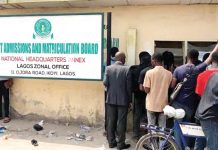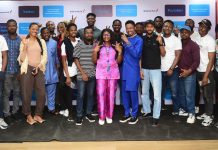Considering how technology has taken over the accounting profession, one major skill required for accountants to prepare for the future is adaptability.
This was the viewpoint of David Lyford-Smith, Technical Manager in the Tech Faculty of ICAEW – the Institute of Chartered Accountants in England and Wales at the 49th Annual Accountants Conference organized by the Institute of Chartered Accountants in Nigeria (ICAN).
The conference, which had the theme: ‘Building Nigeria for Sustainable Growth and Development’, took place at the International Conference Centre, Abuja between September 9 and 13, 2019.
David Lyford-Smith, who presented a paper at the plenary session titled ‘Disruptive Innovations: Challenges and Opportunities in the Accounting Profession’ explained that professionals need to adapt to changing standards in the industry, especially as it adjusts to emerging technology.
He noted that the accounting profession was already reacting by creating exams and learning materials to produce knowledgeable newly-qualified accountants.
He said: “Nigeria has a young and growing accountancy profession and this means there is a huge opportunity for students and current accountants to be trained today for the needs of the near future.
In the very near future, the number one skill for accounting will be adaptability. Accountants won’t have to be technologists but must be able to talk to them; they need to be able to meet in the middle.
“These effects are already being felt. The Big 4 – KPMG, Ernst & Young (EY), Deloitte and PwC- are already struggling to keep their juniors occupied while teaching them the basics.”
Lyford-Smith added that other skills that will be required are statistical thinking and understanding data. He said: “Understanding statistical thinking is a key skill for auditors interpreting analytics data.
Software may be able to process huge amounts of information, but interpreting the results correctly means taking a skeptical interpretation and understanding concepts such as margins of error, outliers, sampling bias, and so on. Accountants still need to be able to prioritize useful tests above interesting ones and be able to tell the difference.”
Speaking on the transformational trends in accounting aptly referred to as the ‘ABCDs of accounting technology’, Lyford-Smith explained that these have been the focus of the ICAEW’s tech work over the last couple of years.
The ABCDs of accounting technology are artificial intelligence (AI), blockchain, cybersecurity and data. He said: “Once accountants adapt to changing trends, they will realise how much time and resources can be saved.
For instance, AI involves automating even non-repetitive tasks, replicating accountants’ intuition and turbo-charging accountants’ judgment. With blockchain, there is no need to reconcile books, although the accountant will still need to assess the economic value of assets.”
The Editor and Blogger, Lyford-Smith on ICAEW’s Excel Community however noted that cyber risk was high but explained that there was a need for new controls around the detection, response and resilience.
With the recent focus on Big Data, new sources of non-financial data are available to provide hard evidence for decisions, identify how data supports specific decisions and provides value, as well as check the integrity and quality of new sources of data.
The Excel specialist, Lyford-Smith, who has strong interest in the digitalization of taxes, emphasized that technology was important for audit and taxation, as it provided simplification and could be tailored according to each country’s specific circumstances.
He disclosed that the ICAEW’s Digital Tax report looked at how tax authorities in 12 countries – including Nigeria – are making use of the opportunities to improve efficiency and reduce compliance costs.
Other sessions at the four-day conference were ‘Strengthening Institutional Framework to Support Anti-Corruption Drive’, ‘Path to Overcoming Security and Infrastructural Challenges in Nigeria’ and ‘The FIRS Power of Substitution: Critical Review and Matters Arising’.
The conference was attended by over 5,500 chartered accountants from across Nigeria.











